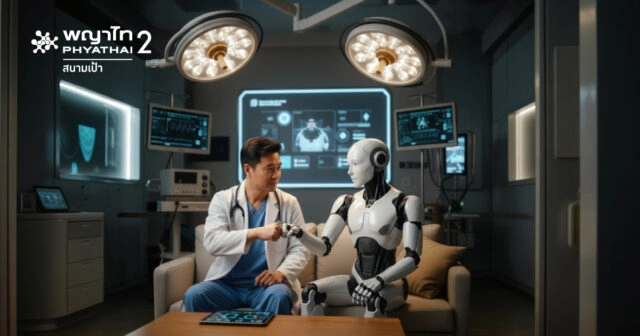Neurological Disorders in Children That Parents Must Be Aware Of

Brain and nervous system disorders are complex, especially in children, who are in a stage of growth with ongoing brain and neurological development. Careful monitoring and management are essential, as certain conditions may not be immediately apparent to parents or guardians.
Dr. Jiraporn Amornfa, a neurosurgeon at Phyathai 2 Hospital, explains that brain and nervous system disorders in children can be categorized into major groups:
• Congenital Disorders: These may result from genetic factors or non-genetic causes.
• Brain and Spinal Cord Tumors: Conditions involving abnormal growths in these areas.
• Traumatic Injuries: Disorders caused by head or spinal cord injuries.
• Infectious Diseases: Infections affecting the nervous system.
• Vascular Disorders: Abnormalities in blood vessels within the brain or nervous system.
Early detection and treatment are critical to managing these conditions effectively.
Brain and Nervous System Disorders in Children Requiring Surgery
• Congenital conditions: These are present from birth due to abnormal brain and spinal cord development, often linked to genetics. Examples include hydrocephalus, brain tumors, and spinal cysts.
• Brain and spinal cord tumors/cancer: While the exact cause is often unknown, genetics may play a role. Treatment options include surgery, chemotherapy, radiation, and targeted therapy.
• Brain and spinal cord vascular abnormalities: These involve blood vessel abnormalities and may be treated surgically or by injecting medical materials.
• Traumatic brain and spinal cord injuries: These are caused by accidents and may require surgery.
Common Concerns about Pediatric Neurosurgery
Many parents worry about the implications of surgery on their children. Modern neurosurgery offers a variety of techniques for treating brain and nervous system disorders. These include:
• Open surgery: This involves making an incision in the skull, either through a larger or smaller opening.
• Microscopic surgery: A microscope is used to enhance visualization during surgery, particularly in deep or complex areas. This is especially beneficial for pediatric patients due to the smaller size of a child's brain.
• Endoscopic surgery: This minimally invasive technique involves making small incisions in the skull and inserting an endoscope to perform the surgery. It is often used for conditions such as hydrocephalus or certain types of brain cysts, as it allows for a smaller incision and faster recovery time.
Warning Signs That Require Immediate Medical Attention
Parents should seek medical consultation promptly if their child exhibits the following symptoms:
• Abnormal masses on the head or spine detected after birth.
• Rapidly growing or abnormally shaped heads, detected through regular health check-ups and head circumference measurements.
• Misshapen or asymmetrical skulls with bulges or flattening.
• Persistent morning headaches accompanied by vomiting.
• Seizures or muscle spasms.
• Weakness or numbness in the limbs.
• Facial asymmetry, difficulty swallowing, drooping eyelids, or crossed eyes.
If any of these symptoms are observed, do not delay—seek medical attention immediately for proper diagnosis


